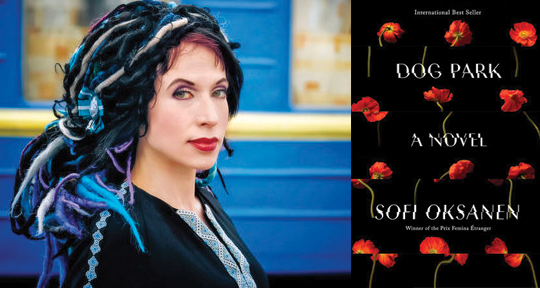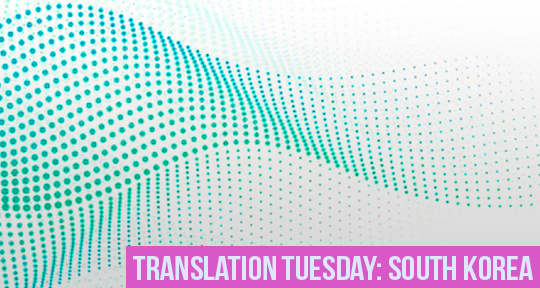I read the Spring 2023 edition of Asymptote as the NBA playoffs began in the United States, and Damantas Sabonis (son of legendary Lithuanian player Arvydas Sabonis) and the Sacramento Kings faced the defending-champion Golden State Warriors in a first-round matchup. I was immediately drawn to the nonfiction piece “Liberating Joy” (tr. Delija Valiukenas) which centers the 2003 European Basketball Championships and the collective joy that the Lithuanian team, Žalgiris, inspired in their fans all over the country. Author Julius Sasnauskas, also a priest and monk, approaches the topic from his unique perspective, incorporating Catholic doctrine into his narrative which intertwines sports, culture, and national identity.
—Mary Hillis, Educational Arm Assistant
Alaa Abu Asad’s interview with J Carrier, for the very nature of its form, felt at times reductive of his rich investigations into the everyday, but the poetry in Asad’s visual pieces aptly captures the sentiment of (un)belonging.
Resonating very much with Hannah Arendt’s quote “it wasn’t the German language that went crazy,” Yevgenia Belorusets’s interview with Eugene Ostashevsky begins with her love of the Russian language. It’s only right that “no language can be mobilized against the tremendous violence offered by war […],” and this renders many writers and artists hopeless especially in times of insurmountable physical and linguistic violence. Yet it is still, somehow, language that rebuilds one’s voice and keeps one conscious. Ostashevsky’s question is also very apt in this regard when he argues “the idea that any language can’t express the full range of human relations and emotions is false.” Belorusets’s answer, “maybe it’s easier for us to think that it is the language that is under threat,” is at once the most poignant critique of and piercingly emotional charge against the “easier” indictment of language.
—Megan Sungyoon, Assistant Editor (Poetry)
A highlight of our animal-themed Special Feature, Yolanda González’s “Song of the Whale-road”(tr. Robin Munby) is so dense and weighty in meaning that I feel the reader cannot but be transformed; the original piece, as well as the translation, so deftly compresses eons of whale-years and experience into an exceptionally moving and eloquent and elegant piece. I particularly love the ambiguity of the pronouns—it takes a few readings to wrap your mind around the narrative voices and personages, which further adds to the ‘darkness’ of the piece and the impression of coming out into the ‘light’ of mental clarity with each read.
—Michelle Chan Schmidt, Assistant Editor (Fiction)
“Let it Go” by Mariana Berenice Bredow Vargas, has an urgent, propulsive rhythm in Forrest Gander’s translation, and, in the stunning audio version by the author, feels almost like a hymn, each mesmerizing, sweeping me into the vision of the poem. After reading the dazzling Present Tense Machine by Gunnhild Øyehaug (trans. Kari Dickson), I was thrilled to see “But Out There—Out There—,” a nonfiction piece by Øyehaug, this time in Francesca M. Nichols’s translation, and this essay is similarly, satisfyingly interior, funny, inviting, and surprising, although it is itself focused on the quality of “incompleteness,” which, for Øyehaug, makes writing a novel so difficult. The excerpt from Wu Ming-Yi’s Cloudland, translated by Catherine Xinxin Yu, is concerned with a relationship between text and life, which is similar to the relationship between dreams and experience. This delicate story of a man, following the traces of his late wife’s short story about cloud leopards, into a mountain forest, where he uploads mapping data and images into a cloud of a different sort, was one of the most memorable pieces in the issue, and I’ll certainly be keeping an eye out for the English publication of the novel. I’ve been intrigued by what I’ve heard of Mircea Cărtărescu’s Solenoid, but even if I hadn’t, Alex Lanz’s review would have been well worth the read for Lanz’s kaleidoscopic descriptions and grapplings with the book’s allusions and form, and with Cărtărescu’s “Bucharest, that ‘open-air museum’ of melancholia.”
—Heather Green, Visual Editor




